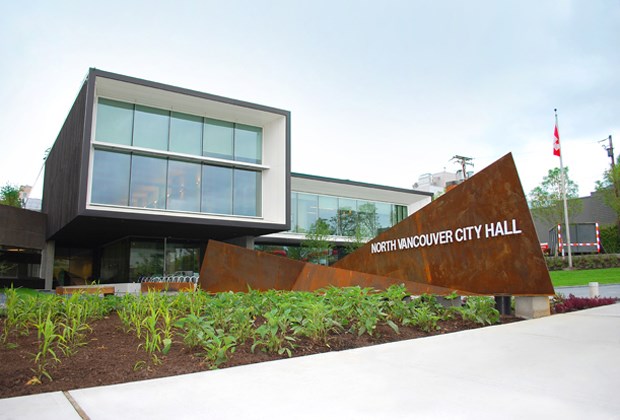City of North Vancouver council has traded the sharpened pencil for a hatchet in making some last-minute changes to the 2020 budget, as COVID-19 is expected to make major impacts on the city’s finances.
Council voted unanimously Monday night to chop the proposed tax increase for 2020 from the originally proposed 4.58 per cent down to two per cent.
The increases will cover inflationary cost creep, but the city is cancelling all new spending and instituting a hiring freeze while only proceeding with must-have capital projects, for the time being.
“Two weeks ago, we did direct staff to reduce this tax increase as much as possible and I am pleased to see staff’s response to this request, which took our budget and basically cut it in half in two weeks. That is no short order,” said Mayor Linda Buchanan. “It encompasses both our civic responsibility and our financial sustainability.”
City finance staff are expecting a drop in some non-property tax revenues like parking, permits, facility rentals, recreation programs. And staff are also bracing for the possibility of having to pay interest on short-term loans taken out in case there are major delays collecting residential and business property taxes, which come due on July 1.
The budget also departs from past practice of socking away a little bit each year specifically reserved for replacing and repairing aging infrastructure. By chopping that extra one per cent in the 2020 budget, it has already created an $11.8-million funding shortfall for 2021’s capital plans, which council will have to make up for in the meantime.
“We’ve basically taken it down to just the essentials with the idea that, going forward, we will take a look as the finances unroll over the year at what things we can add back in, if and when we can,” said Coun. Don Bell.
Buchanan said she expected the city will have to review the budget at least once or twice more before the year is out.
Coun. Tina Hu agreed it was the most prudent thing to do with so much uncertainty hanging over the economy.
“The real financial impact will show after the pandemic, but we have to plan for the worst-case scenario,” she said.
Coun. Tony Valente said it was disappointing to see some of council’s goals for the year being shelved but that it was part of the “new reality” in which we live.
Council has yet to decide how the two per cent increase will be spread among the different residential, business and industrial tax classes and finance staff have not yet calculated what the average increase will be for the typical homeowner. Those will both happen before the next council meeting on April 27.
By law, municipalities must pass their budgets by May 15.



